Rachel Neumeier's Blog, page 309
March 11, 2016
Giveaway —
Just wanted to let you all know: I’ve got a giveaway running for the next week on Goodreads, so if you’d like a signed copy of The Keeper of the Mist, well, here’s a chance to win one.
.goodreadsGiveawayWidget { color: #555; font-family: georgia, serif; font-weight: normal; text-align: left; font-size: 14px;
font-style: normal; background: white; }
.goodreadsGiveawayWidget p { margin: 0 0 .5em !important; padding: 0; }
.goodreadsGiveawayWidgetEnterLink {
display: inline-block;
color: #181818;
background-color: #F6F6EE;
border: 1px solid #9D8A78;
border-radius: 3px;
font-family: "Helvetica Neue", Helvetica, Arial, sans-serif;
font-weight: bold;
text-decoration: none;
outline: none;
font-size: 13px;
padding: 8px 12px;
}
.goodreadsGiveawayWidgetEnterLink:hover {
color: #181818;
background-color: #F7F2ED;
border: 1px solid #AFAFAF;
text-decoration: none;
}
Goodreads Book Giveaway

The Keeper of the Mist
by Rachel Neumeier
Giveaway ends March 18, 2016.
See the giveaway details
at Goodreads.
This particular giveaway will run from today through March 18th.

Puppy J
So, Puppy J — Jos — Anara Justinian — is now a whole 12 weeks old. Three months! Spring has sprung, the apricot trees are blooming and the puppy is settling into the broader world.

Basically this is a nice puppy. He’s an independent little cuss, perfectly happy to trot off on his own to explore, confident in new situations, starting to realize that people everywhere are carrying treats for him, all like that.
You remember I was waiting for cosmetic features to sort themselves out. Well, twelve weeks is about the time you can start to see how some of those features are going to work. So, in order of increasing importance:
Freckles. None! To be fair, Jos has a tiny little freckle on his tummy, where it is completely unimportant. For all I know he may be hiding a few under all that fluff, but that doesn’t matter much either. What matters is, his face is completely clean. Not even a little freckle down by his nose. Nothing. And on a really white face like this one, that really matters! So he took after his mother here rather than his father. Good puppy!
Underbite. Not yet! So far, Jos has had a good bite. That’s from three weeks, when his teeth first came in, to the present. In a Cavalier puppy — bred out of pug-faced English Toy Spaniels — the bite can go off and then come back any number of times, but it’s a good sign when the bite is correct all through this early period.
White sclera. Alas, the sclera is pale in both eyes. Maybe it’s marginally better to have this in both eyes instead of just one like his mother? Maybe it won’t be quite as obvious that way? But definitely this is a cosmetic flaw. Jos is not going to have the big round dark beautiful eyes of his father. Too bad!
Gay tail. You remember how Missus jokes about this “grave fault” in the novel 101 Dalmations? Well, it is a grave fault in Cavaliers, too. You want the tail carried at about the level of the back — higher is okay, but definitely not a vertical tail carriage like a Fox Terrier or something. I was talking about this with a friend; she was telling me about a really lovely girl someone is showing that can’t win because of her tail carriage.
On the other hand, sometimes a dog will just carry his tail a bit high when he’s feeling particularly full of himself, like when he’s got a toy and is strutting around because he’s Such A Big Dog. Jos is like that, I think — his tail seems *mostly* okay. I think.
Head. Pretty. Nice and broad. Jos should be a handsome guy, with a good, modern style of head.
For boys only: equipment in the right location. Nothing will so absolutely ruin a dog for show and breeding as retaining one or both testicles in the abdomen. Ishmael was very late to get both his down where they should be. To my surprise, his son was very early to sort his out and has been fine in this department since he was six weeks old. *Good* puppy!
Structural features: The puppy’s well-being is not affected by any of the above, at least not if he’s going to be neutered anyway.
Incidentally, I’ve heard of a couple of male puppies that were “neutered” by vets who didn’t remove a retained testicle and didn’t mention this to the owners. Not like this could happen by accident, most vets can probably count to two, so this was actual fraud and really contemptible.
Not the worst story I’ve ever heard about a vet — there’s a particular vet in St. Louis who is specifically mentioned in my contract as an “absolutely under no circumstances can you take your puppy to this guy.” That’s because he put a little puppy on a low-calorie low-protein low-fat low-nutrient diet for its entire puppyhood and just destroyed that puppy’s body. Let me add that, as the pet’s owner, you should apply reasonable common-sense assessment to veterinary advice. I for one will totally blame you if you starve your puppy, even if a vet told you to.
Moving on, moving on.
Structure is more important than cosmetics, obviously. In that department, Jos is pretty solid. I’d like his hocks to be set a bit lower. High-set hocks give you great initial speed but tend to reduce endurance. I think he’s okay in that department, but not ideal. Other than that, he seems well put together. Good angulation, good length of neck.
The bottom line: a good puppy, not perfect, but totally worth keeping to see how he grows up.


March 10, 2016
Mark Lawrence’s self-published fantasy book challenge results
Hey, do you remember this self-published fantasy novel challenge from last year? Mark Lawrence arranged for ten bloggers to each try a bunch of self-pubbed titles, 300 in total, and sort out their favorites, then sort out their favorites of those and so on.
Well, the results came out recently; you can view the results here.
The participating bloggers included Bookworm Blues, Elitist Book Reviews, Fantasy Faction, Fantasy Book Critic, Lynn’s Books, The Fictional Hangout, Beauty in Ruins, Bibliotropic, The Speculative Book Review, and Fantasy Book Review. All the blogs are linked at the top of the results table, and most of their reviews for the winning titles are linked as well.
Each blogger rated a title from one to ten. The overall top-rated title averaged out with an 8.0, with individual scores ranging from 6.5 to 9.0 — this was The Thief Who Pulled on Trouble’s Braids.
The work that got overall second place was Bloodrush by Ben Galley, a fantasy with a western setting that I actually purchased last year but (of course) haven’t had time to read yet. Well, I’m glad to see it scored rather high. Its individual scores ranged from 6.0 to 9.0 and I see it was the overall favorite of four different bloggers — no other title was the top-rated book for more than two bloggers.
The single title that seems to have sparked the most extreme disagreement looks like What Remains of Heroes, by David Benem which was rated a 4.0 by two bloggers and an 8.5 by four bloggers. Wow. Let’s see, all right — some readers are perceiving it as dark fantasy, some as grimdark. I can see why the ratings are so violently variable.
There’s also a title, Priest by Matthew Colville that ranged from 3.0 to 8.5, but all the rest of its scores are middle-of-the-road, from 6.0 to 7.5.
Anyway, there are ten winners listed in the table; the others are The Weight of a Crown by Tavish Kaeden, City of Burning Shadows by Barbara Webb, Sins of a Sovereignty by Plague Jack (really, that’s how the author is listed; can you think of a better way to say Don’t Take Me Seriously As An Author than to use a handle like that?), Shattered Sands by WG Saraband, Under a Colder Sun by Greg James, and A Soul for Trouble by Crista McHugh. I think that’s all of them.
As I say the reviews are mostly linked from the results page, so click through if you’ve got a minute and would like to take a closer look.

March 9, 2016
The Keeper of the Mist is out!
Which you probably know, especially if you very kindly pre-ordered it, since it should have arrived at your doorstep (or on your e-reader) yesterday.
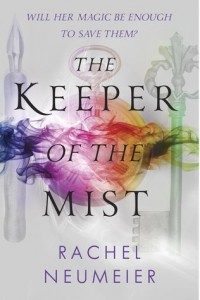
So let me mention, in case you’re interested, that a blog tour for MIST is coming up. The Fantastic Flying Book Club kindly offered a book tour, and of course I jumped at the chance. Here is the schedule, with links.
The tour is starting March 15th. A total of 24 bloggers are participating, so let me offer my heartfelt thanks to them all here. I encourage you to click through and check out their blogs!

Poetry day
Here’s one of my very favorite poems. This is Emily Dickinson. I don’t have to look it up; it’s very easy to remember.
To make a prairie it takes a clover and one bee,
One clover, and a bee.
And reverie.
The reverie alone will do,
If bees are few.
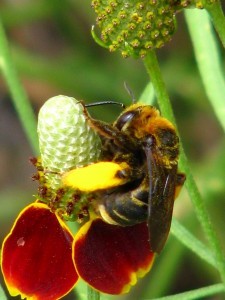

March 7, 2016
Beware the “Writing Police”
Here’s an entertaining post by Anne R Allen: Beware the Writing Rules Police
The Harvard Business School recently did a fascinating study of toxic employees and their effect on a company’s bottom line. The researchers discovered the most difficult and costly employees aren’t the lazy ones or the gossipy ones.
It turns out the worst are the ones dead-set on following rules to the letter.
Hah, I can believe it!
Anne Allen is addressing several points in this post: that would-be writers who don’t actually know grammar that well are often the ones most dogmatically committed to weird rules that don’t really exist; and that rules that actually decent suggestions can be overapplied or misapplied.
She adds:
My #1 pet peeve when it comes to silly writing rules is the one that says you can’t use the word “was” because it makes your writing “passive.”
I wrote a whole post about it in 2012: Should You Eliminate “Was” from your Writing?
I’ve heard from a number of writers who were unfortunate enough to meet up with an editor or agent who insisted they remove every instance of the verb “to be” from a novel.
Excuse me while I roll my eyes. You know, we have had writing instructors at my college who have made this same demand of students. It really makes me wish I were one of their students. I’d write the whole paper in active sentences, every one of which included forms of “to be.”
Grammar rules are much on my mind right now, what with going over this copy-edited manuscript. Mostly I accept the copy editor’s suggestions, but sometimes I use stet to say: Yes, I do want this comma splice; I want all the comma splices in this particular passage. Also, I know this comma is not technically necessary, but I think the little pause it creates is important here. Sometimes I add a brief note explaining a stet that I feel might otherwise be questioned.
I also see that Saga has some house style rules that seem a little strange to me. No comma after short introductory clauses. Okay, I don’t care. Usually I don’t care; once or twice the sound of the sentence is all wrong if you take out that comma.
Also, they want a comma after a dash in dialogue, like so: “If you actually think–,” he began. I think that looks weird, so I spent an entire hour of my time searching for the –,” construction and rephrasing all those sentences. Almost all; I felt two could not be successfully rephrased and just left them alone.
And if I had known the copy editor would painfully capitalize Your Highness everywhere, I’d have capitalized it myself. Sorry, copy editor! I don’t think it matters in secondary world fantasy where the rules can be different, but fine! I sure don’t plan to stet all those back.
Anyway, I estimate going through the copy edits will take about another two hours, so I *nearly* finished over the weekend. Other things that got done: taking dogs to the park. Other things that did not get done: Keziah’s story is not nearly finished. I think it’s going to be longer than I estimated, not entirely to my surprise. And though I clipped and brushed Dora, she has not yet had a bath.
Seven days left in spring break! Gotta run —

March 6, 2016
Novels that get religion right
Okay, in reference the recent post about *Yet Another* SFF Novel Where Early Christians Are Intolerant, Bigoted And Basically Eeevil, and the extreme lack of contemporary work that treats religion in a more thoughtful and historically literate manner . . . here is a compilation you may find of interest. Thanks to everyone who helped build this list!
Published in 1960, The High Crusade by Poul Anderson. This is an immensely fun and moderately believable story, a real classic. Craig reminded me of it.
Published in 1962, A Wrinkle in Time, which I had inexplicably forgotten about. SarahZ added this title, which I should have thought of myself. SarahZ also gets a gold star because science and religion are not shown as opposed in this one.
Published in 1969, In This House of Brede, by Rumer Godden, which I just thought of right this minute. It’s not SFF nor properly historical, but it is one of the most beautiful novels I’ve ever read.
Published in 1971, Operation Chaos, also by Poul Anderson. Mary added it to the list.
Published in 1991, A Bad Spell in Yurt by C Dale Brittain. Extra credit for having a friendship develop between a person of faith and a wizard, which is almost as good as between a person of faith and a person of science. Thanks to Phineas for pointing this one out.
Published in 1992, Doomsday Book by Connie Willis, also added by Mary.
Published in 1996, The Sparrow by Mary Doria Russell, presents both science and Christianity in a positive light. Well, more or less. What people get wrong in this one has to do with their lack of omniscience, for which no one can be blamed even if the consequences are dire. Incidentally, I don’t believe in the evolutionary background of the alien species in this duology. AT ALL. But I still really enjoyed it! Even though, fair warning, it contains the second most horrible set of events I’ve ever encountered in literature. Thanks to SarahZ for reminding me of this one as well, though I’m not sure I have the nerve to reread the duology. The ending is hopeful, though, so if you pick up the first book, you really must go on to the second (Children of God).
Published in 2002, Declare by Tim Powers, another suggestion offered by ElaineT.
Published in 2003, The Beacon at Alexandria by Gillian Bradshaw, on of my very favorite historical novels.
Published in 2006, Eifelheim by Michael Flynn, which I haven’t read but which is now on my radar for the second or maybe third time. I think I must try it. Craig and ElaineT both pointed this one out.
Published in 2008, The Night Angel trilogy by Brent Weeks, which deals respectfully with faith if not specifically with Christianity. Megan reminded me of this trilogy, which I read and pretty much liked, but it was just a bit over the grim and gritty line for me and I wound up giving the trilogy away.
Published in 2009, In Great Waters by Kit Whitfield. I read this but am embarrassed to admit I don’t remember the bishops, about whom Siavahda says in a Goodreads comment, “I think I remember that one is not very nice, but the main one definitely is a lovely man and helps save the lives of the main characters — although he does temporarily turn against them at one point, it’s for very understandable reasons fueled by his faith.”
Published in 2014, The Chaplain’s War by Brad Torgersen. I haven’t read it. Goodreads says: A chaplain serving in Earth’s space fleet is trapped behind enemy lines where he struggles for both personal survival and humanity’s future. ElaineT and her husband give it two thumbs up.
Also published in 2014, Paradigms Lost by Ryk E Spoor, of which ElaineT says it “doesn’t have a lot of overt Christians but treats all believers respectfully.”
Published in 2015, The Mechanical and others in the series by Ian Tregillis. Siavahda says, in a comment on Goodreads, that this one “actually kinds of reverses the trope; the super-sciencey people are the ones who are the worst, morally, although most of them are only grey rather than outright evil. The priest who’s one of the main POV characters is a wonderful character and really embodies the best of what I think Christianity is supposed to be.” Well, I’m not keen on the scientists being presented that way, either, but I don’t think EEEVIL scientists is really a *trope* as such, so it doesn’t strike me as so offensive and lazy as the intolerant-ignorant-person-of-faith thing, which you just can’t turn around without tripping over.
Published in 2015, Silver on the Road by Laura Anne Gilman, which of course is one of the ones I suggested.
Okay, that’s sixteen titles. Given that something like 2000 SFF novels are (traditionally) published per year, this is not very many.
If we tried to list SFF titles that represented just *particularly egregious* instances of the EEEVIL Christian trope, how many do you suppose there would be? If we tracked that trope from 1960 to the current day, I bet we’d also find a pretty obvious trend. Not that I’m volunteering to put in the work to define terms and count up books, so don’t hold your breath for that one. But still.
Okay, I’m adding some of these to my TBR pile now, not that I have time to read them just riiiight this very minute, but at least I want to remember they’re on my virtual TBR shelves. Yes, Eifelheim is one of the ones I’m going to try.
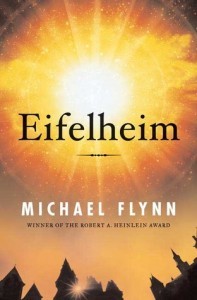

March 5, 2016
Recent Reading: Archivist Wasp by Nicole Kornher-Stace
Okay, I picked a sample of this one up because of Chachic’s recommendation; it appeared on her Best of 2015 post.
Then Archivist Wasp also appeared as a nominee for the Andre Norton Award this year, and I thought, fine, and moved it to the top of my TBR pile.
And the sample was okay, so I went ahead and got the book.
And, ladies and gentlemen, we have a winner here, that’s for sure. Archivist Wasp is going to have to bump something else for my Hugo nominations, that’s all there is to it.
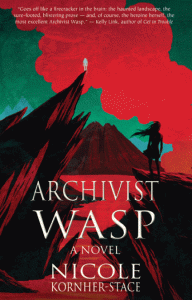
Archivist Wasp starts with a life-and-death struggle:
+++++
The knife. She’d lost the knife. Now she was as good as dead.
Frantically she scanned the sand around her. No knife. How far off could it have landed? She squinted to see farther out, but the crowd’s torches were too far back for the blade to catch their light. She swore under her breath. Fractions of a second passed where she, Wasp, three years Archivist and terror of the upstarts, actually froze. They were probably the last fractions of a second she had left.
+++++
Spoiler: Wasp wins this fight and has quite a lot of seconds left.
Let me tell you about Wasp.
Well, first let me tell you a little about the world she lives in. What a nasty, brutal world it is! Especially for Wasp and girls like her. The setting is somewhere between secondary world fantasy and dystopia – in an ordinary dystopia, the background story has something to do with our world turning into the setting of the story. That doesn’t seem to be the case here, because it’s hard to imagine how our world could possibly have turned into this one.
On the surface, the setting does look like a fairly typical dystopia: we see a low-tech village-centered landscape, a world of hardscrabble poverty and petty tyranny. We don’t get a good notion of what the broader world is like, though there are hints it’s not much better anywhere nearby. But underneath the surface exists a level of reality that is totally different from anything we know. This is the underworld of the ghosts.
What a peculiar and creepy underworld this is! It has no obvious correspondence to any mythological underworld I know of; no, it’s peculiar and creepy in its own special way. You have to look slantwise at things or they might disappear; you never seem to wind up where you thought you were heading; doorways seldom look like doorways. Beyond all that, there’s a bridge made of death-offerings, a weeping willow that’s actually made of tiny bones strung together, packs of slavering hounds that melt into black sludge when you kill them, tattered pieces of ghosts hung on thorn briars . . . as I said, creepy.
Not that most people ever get to see this world unless they’re ghosts themselves. Except for Wasp. And she has an unusual companion to show her the way.
Okay, so, Wasp.
She’s the Archivist. She collects the occasional spoken utterances of the dead, she collects and destroys ghosts that cause too many problems for the living, things like that. She was marked before birth by the goddess Catchkeep as one of the girls who might be Archivist, but to win the position she had to fight and kill the previous Archivist. Now every year she has to fight and kill three girls – not exactly volunteers; the marked girls draw straws – in order to keep her position.
The story isn’t about the fighting, though. This isn’t The Hunger Games; nothing like it. Wasp’s ugly past and grim present are part of what makes her who she is, but that’s all background.
The rest of what makes her who she is . . . well, let’s see. Lifelong isolation. Innate stubbornness. Anger. Endurance. And an unquenchable penchant for kindness, despite the risk of dire punishment if she’s caught.
Wasp has never had real family, nor a friend, or an ally. Not even a pet; the shrine-dogs are trained to be vicious. So when Wasp meets this one peculiar ghost, well . . . it’s certainly not friendship at first sight. No. But for a lot of reasons she agrees to help him find a lost friend of his, another ghost, and the story unrolls from there.
I don’t want to say too much about it, and almost anything would be too much. I don’t want to describe the ghost, or his lost friend. Or the revelations about the world, or about Wasp herself. My advice is: avoid reviews. Even the ones that are kind of shying away from spoilers often say too much about this story, imo.
I will say this: the story, for all its disparate elements, hangs together very well. And the conclusions of the ghost’s personal story and of Wasp’s personal story are both very satisfying.
The writing:
Beautiful and startling.
A breeze blew up from the water, smelling of copper, limes, and carrion. A lonely pale willow overhung the pond, and the breeze set its fronds clicking together. Closer, Wasp would find they weren’t made of leaves at all, but whiplike plaits of tiny bones.
Morning dew was damp against her back. The bite-wound in her arm was bound, as were the blistering fingers of her off-hand. Avobe, crouching on the willow, the sun looked like a ragged hole blown in a lavender sky. It cast no reflection in the water.
And again, later:
They were left facing down a long straight road, from which other long straight roads branched off. These roads were all exactly alike. Most of the buildings had no doors. Above, the crimson clouds stuttered across the sky. It was less like a city than a dream of a city, an idea of a city. Or a memory of a city so often replayed that the details had started to blur and fade, like an ink drawing of a city left out in the rain.
Okay, one last note. The author, Nicole Kornher-Stace, notes in the acknowledgements that this book was tough to place. She says: “I am endlessly grateful to Small Beer Press for taking a chance on Wasp and her specimen when everybody else told me they were unmarketable.”
Honestly, publishers, what is up with that? You know why Archivist Wasp is up for the Andre Norton Award and got a starred review from Kirkus and everybody’s putting it on their Best of 2015 lists? Because it’s a great book, that’s why. Unmarketable my foot. Two thumbs up for Small Beer Press, and I hope this book goes on and wins the Norton. If you’re nominating for the Hugo, I hope you have time to read this one and see what you think.
My Hugo nomination list is now:
Almost for sure:
In the Country of Ice Cream Star
Archivist Wasp
Silver on the Road
Possible:
Ancillary Mercy
Bone Gap
Uprooted
And I think Uprooted is a shoo-in based on its massive number of reviews on Goodreads, so at the moment, that’s the one that I’m leaning toward dropping off my personal nomination list.
2015 titles I would still like to read before nominations close:
Updraft
Barsk
Sorcerer to the Crown
Walk on Earth a Stranger
Carry On
The Just City.
I don’t know how many of those I will get to. I have both Updraft and Carry On on my Kindle, the others as samples. If you’ve read anything you think should go on the top of my urgent must-read-immediately list, drop it in the comments and I’ll try to get to it.

March 4, 2016
Spring break, yay!
Of course, my plans for spring break may differ a trifle from the cliche.
This is not the plan:

Instead, it’s more like this:

Before yesterday, my spring break plans included:
Take Puppy J (now Jos) out for fun times in public.
Take older dogs out for fun times in park.
Bathe dogs (they look fine, but they are all overdue for baths).
Dust the kitchen.
Write 2 short stories for next Black Dog collection.
Then I suddenly had both my editors drop projects in my lap, each requesting that I send back the manuscript by the middle of March. THEN I had Caitlin drop yet another project on me, though of course without a deadline (except the book is due to Saga later this spring, so there’s *that* deadline). So with all of htat, my spring break week now looks more like this:
Friday, Saturday, Sunday: Go over copy edits for The Mountain of Kept Memory. Write one Black Dog story.
Writing the short story is included because going over a copy edited manuscript is boring. One goes blind with boredom, so that it gets hard to pay attention to what the copy editor has done. It would be sooooo easy just to accept all changes and move on to something else. So an hour at a time, three or four hours a day, is about all I can take.
On the other hand, going over copy edits doesn’t actually take long and I do in fact accept most of the suggested changes. I find I can get through 50 to 75 pages per hour, which for Mountain means about seven to ten hours. So my plan is to get through this project by the end of Sunday and finish the story that shows Keziah’s background over this three day period (counting today).
Also, I will definitely take Jos out at least once in those three days, and take older dogs to the park at least twice so they all get a turn. And *surely* if I bathe just one dog a day, it won’t take too long? Although I should clip and thoroughly brush Dora. Sigh.
Then:
Monday, Tuesday, Wednesday, Thursday: Do this final revision of The White Road of the Moon. Surely four full days will be enough. Hopefully I’m overestimating the time this will take, rather than underestimating it. I read through the comments twice and I really don’t think this revision will require too much time.
And I should still be able to take Jos to town at least twice and take some of the older dogs to the park, too. And bathe the rest of the dogs, whether they need it or not. I will then weep if someone insists on rolling in the mud. Did you see this picture on Twitter of a Golden who had rolled in freshly mowed grass?

I wonder if this picture was touched up or whether the dog really is that green?
Anyways, after that:
Friday, Saturday, Sunday: Take a stab at writing a second Black Dog short story or novella. I have been fairly well stuck with the third Black Dog novel (Shadow Twin) because I can’t decide whether Justin and Keziah should be characters in the novel or instead have their trip to visit Justin’s grandmother happen outside the novel, in a short story. I am going to try writing it as a separate piece. I lean one way and then I lean the other, so it is all very uncomfortable. I’ll see if this exercise makes me decide one way or the other.
And if I also have time to dust, well, that’d be nice. But if not, that’s okay, too.
Then perhaps I will take a day or so off before I tackle Caitlin’s notes on The Winter Dragon, my second book for Saga. She doesn’t like the title, btw, which she thinks is too noble-sounding considering what it refers to. She is probably right. Well, I’ll give it some thought. Anyway, this is a somewhat bigger revision than I would prefer. I expect it will take at least the rest of March and maybe part of April. Though I’ll aim for sending it back on March 31st.
THEN I will get back to my actual WIP (the working title is No Foreign Sky, btw). It’s up to 44,000 words as of last night, but it’s hard to guess what proportion of the total that is because I don’t yet have even a tentative full outline in my head. By the time I’m done with all the above, there should be a lot fewer interruptions aimed my way. I will be aiming to finish it by July 1st, but there is no deadline for this project since I’m writing it on spec, so if it takes a little longer, that’s fine, too.

A trope I especially detest
Sometimes you read a book review that is critical of a particular book you’d looked forward to, and the criticism points toward things that don’t really matter to you or that can be actual positives (This book is so sloooow).
And then there are the times you read a book review that nails down a particular trope that you simply detest. While any detailed, thoughtful book review can be helpful, this particular kind of review is probably the *most* helpful.
So, this morning, Sherwood Smith posted comments about Hardinge’s THE LIE TREE on Goodreads, in which she said, among other things:
Faith is a young teen fiercely interested in the natural sciences, an interest she shares with her famous father, who is also an Anglican minister. When I saw that, I hailed it with inner relief, thinking that finally here would be a book that wrestles with the changing of a paradigm, without going down the usual over-simplification trail by making religious faith and scientific endeavor mutually exclusive. With, of course, the religious characters being narrow-minded, clinging to ignorance, and petty, if not downright eeevil.
Nope, it turned out that Hardinge was trotting down that well-worn path.
… and I metaphorically threw the book across the room and dropped it from the To Read — Urgent pile to the Maybe Someday, Maybe Never pile.
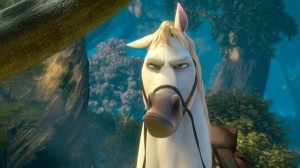
Well, even Patricia McKillip wrote one book I detested. I presume I can still happily anticipate the two other Hardinge books I have on my TBR pile.
So!
If you know of any SFF (or other) novels where Christian characters, particularly in a historical setting, are shown as sincere but not “narrow- minded, clinging to ignorance, and petty, if not downright eeevil,” please drop them in the comments.
I’ll start:
1. Just one of the five Spanish friars in SILVER ON THE ROAD is shown as a thoroughly negative character. Although they are minor characters, two are specifically developed in positive ways. If Gilman had followed the tired narrow-minded-bigot trope for all the friars, I would have dropped the novel to at most four out of five, maybe seven and a half out of ten. That’s how much I loathe this particular extraordinary common trope, which imo is not only lazy but smug and self-righteous.
Here’s another:
2. In THE BEACON AT ALEXANDRIA, Gillian Bradshaw uses narrow-minded, petty Christian monks as a plot driver — but she also introduces Saint Athanasius of Alexandria, who is a fantastic character. Obviously he is a very sincere believer, but he is definitely anything but narrow-minded or petty. Bradshaw does a wonderful, wonderful job handling religious characters and religious conflict in this book.
Other examples, please! Major gold star if you can name one where religious faith and scientific endeavor are NOT shown as mutually exclusive.




